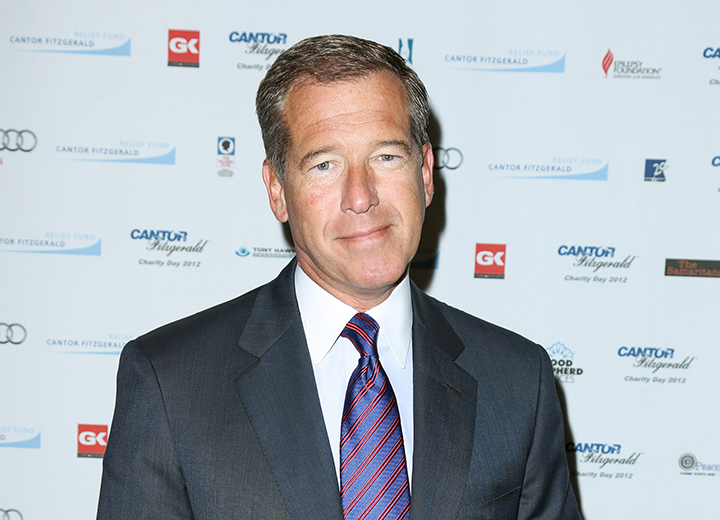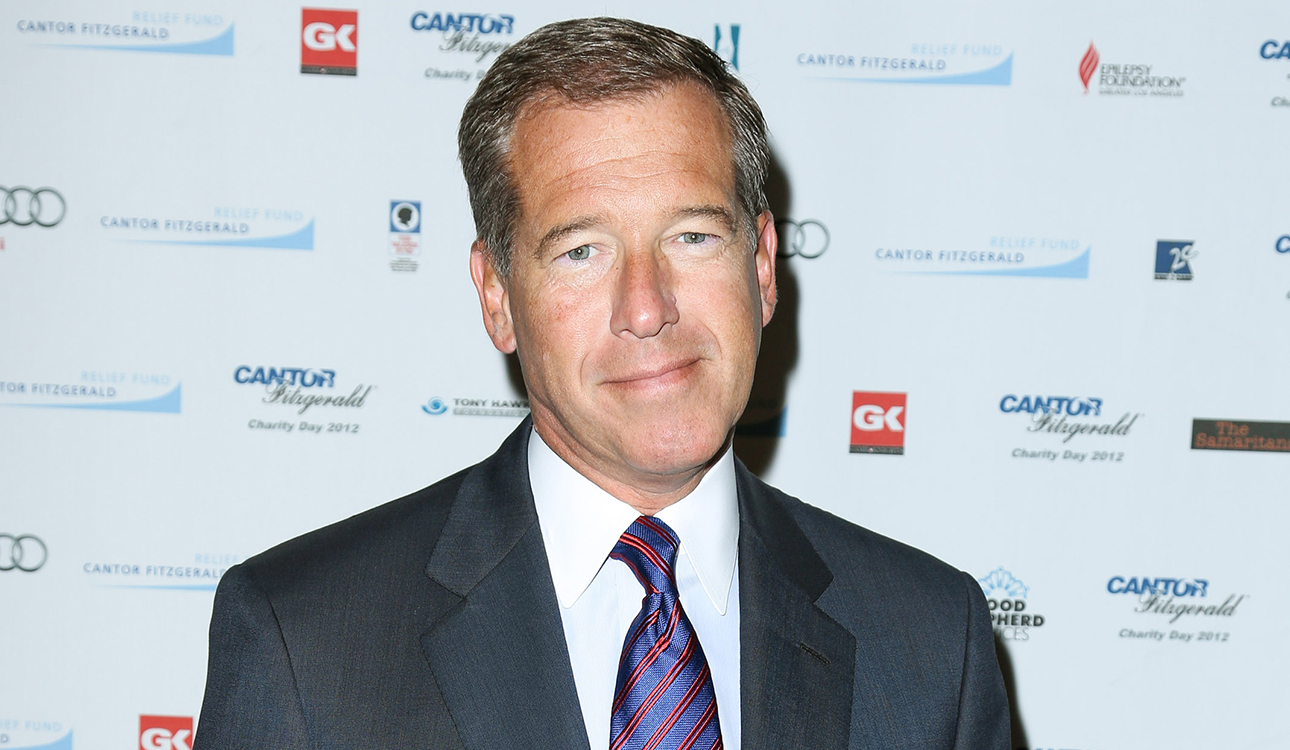
Associated Press
By David Bauder
Associated Press
NEW YORK — NBC News anchor Brian Williams found himself the story Thursday, his credibility seriously threatened because he claimed — falsely — that he had been in a helicopter hit by a grenade during the Iraq war.
NBC News officials would not say whether their top on-air personality would face disciplinary action. The “Nightly News” anchor for just over a decade, Williams had become an online punching bag overnight.
Tweets with the hashtag #BrianWilliamsMemories joked that he blew up the Death Star, saved someone from a polar bear and flew with Wonder Woman in her invisible helicopter. Photoshopped pictures showed Williams reporting from the moon, and riding shotgun with O.J. Simpson in his Ford Bronco.
“How could you expect anyone who served in the military to ever see this guy onscreen again and not feel contempt? How could you expect anyone to believe he or the broadcast he leads has any credibility?” wrote critic David Zurawik of the Baltimore Sun.
“How could you expect anyone to believe he or the broadcast he leads has any credibility?”
David Zurawik | Baltimore Sun
Williams apologized Wednesday for telling the story a week earlier during a “Nightly News” tribute to a veteran he had befriended during a 2003 reporting trip to Iraq. Before expressing his regrets on the air, Williams did so online and in an interview with the newspaper Stars & Stripes.
He speculated online that constant viewing of video showing him inspecting the damaged helicopter “and the fog of memory over 12 years, made me conflate the two, and I apologize.”
His story had morphed through the years.
Shortly after the incident, Williams had described on NBC how he was traveling in a group of helicopters forced down in the Iraq desert. On the ground, he learned the Chinook in front of him “had almost been blown out of the sky”; he showed a photo of the aircraft with a gash from a rocket-propelled grenade.
The NBC crew and military officials accompanying them spent three days in the desert, kept aground by a sandstorm.
But in a 2008 blog post, Williams said that his helicopter had come under fire from what appeared to be Iraqi farmers with RPGs. He said a helicopter in front of his had been hit.
Then, in a 2013 appearance on David Letterman’s “Late Show,” Williams said that two of the four helicopters he was traveling with had been hit by ground fire, “including the one I was in.”
“No kidding?” Letterman interjected.
Williams described making a quick, hard landing in the middle of the desert.
“I have to treat you now with renewed respect,” Letterman said. “That’s a tremendous story.”
Williams’ story was first questioned in posts to the “Nightly News” Facebook page. It’s a touchy topic: Members of the military who are wounded or who come under enemy fire consider themselves members of a special kind of brotherhood and don’t like people who try to intrude, said retired U.S. Army Col. Pete Mansoor, a professor of military history at Ohio State University.
“It smacks of stolen valor,” Mansoor said — an offense that Williams specifically denied in his online apology.
Rich Krell, who piloted the helicopter Williams was flying in that day, told CNN Thursday that there were three helicopters in formation, not four. Although the helicopter in front of Williams was hit by the grenade, Krell said that all three aircraft were hit by small arms fire.
He seemed to take Williams’ account in stride. “After a while, with combat stories, you just go ‘whatever,’” Krell said.
Many people have embellished war stories, in the local tavern or on a national stage. During the 2008 campaign, Hillary Clinton was derided for saying she came under sniper fire when, as first lady, she arrived at a military base in Bosnia. Her representatives said she had misspoken.
Williams’ immediate issue is whether or not people believe his apology, a particular problem in an industry where credibility is crucial.
“It’s pretty difficult to believe,” Mansoor said. “I remember every time I was under fire in Iraq, especially if your vehicle is an aircraft that’s been hit. That’s something that gets seared into your memory for all time.”
The New York Daily News labeled his apology a fake. “So what if it was 12 years ago,” wrote TV editor Don Kaplan. “I remember getting hit in the head with a rock by a kid in the third grade.”
Williams has an out-sized image at NBC News: the blue-collar Jersey guy and witty celebrity who “slow jams” the news with The Roots on Jimmy Fallon’s “Tonight” show. He hasn’t had credibility problems before and he consistently leads in the ratings, making him an outlier at a network where the “Today” show and “Meet the Press” have slipped from their lofty perch as rating champions.
It’s up to NBC News President Deborah Turness to decide whether Williams will be punished in any way. She has the reputations of both her most well-known personality and the news division as a whole to consider.





